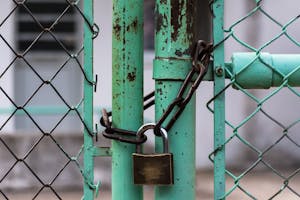Passwords are the frontline of defense against cyberattacks. No matter how extensive your other security measures may be, if your password policy is weak, you will be extremely vulnerable. While nobody likes password policies, they are necessary until other means of authentication (such as biometrics) become universal. Until that time, companies need to be aware of what strengthens a password and what can weaken a password. Here is a summary of some of the best industry practices for developing passwords.


Avoid Common Passwords
Did you know experts have discovered that 30% of users have passwords from the list of the most common passwords? That means that almost 1 in 3 users has a password that can easily be cracked, because hackers are going to try those common passwords. According to Keeper Security, the 25 most common passwords of 2016 were:
- 1. 123456
- 2. 123456789
- 3. qwerty
- 4. 12345678
- 5. 111111
- 6. 1234567890
- 7. 1234567
- 8. password
- 9. 123123
- 10. 987654321
- 11. qwertyuiop
- 12. mynoob
- 13. 123321
- 14. 666666
- 15. 18atcskd2w
- 16. 7777777
- 17. 1q2w3e4r
- 18. 654321
- 19. 555555
- 20. 3rjs1la7qe
- 21. google
- 22. 1q2w3e4r5t
- 23. 123qwe
- 24. zxcvbnm
- 25. 1q2w3e
Enforce an Effective Minimum Password Length
Many people think that as long as their password has a number, an uppercase letter, and a symbol that it is secure, but some experts argue that length is actually the key to a good password. A longer password has a greatly probability of being random than a shorter one, and the most commonly used, and thus easily cracked, passwords have fewer than 8 characters. The ideal password for a normal user should be a minimum of 10 characters; for an administrator or other critical user, passwords should be a minimum of 15 characters.Avoid Predictability
This password would meet the minimum length rule: ‘xxxxxxxxxx.’ Do you see anything wrong with it? Computer scientists would say that it lacks entropy, or unpredictability. The best way to ensure that users to do not attempt to use passwords lacking entropy is to require a minimum number of unique characters. Also, avoid passwords made up of characters that are adjacent on the keyboard, such as ‘asdfgh’ or sequences of numbers such as ‘1234567890.’ Even though that last password has 10 characters, it is a trivial password that hackers will try.
